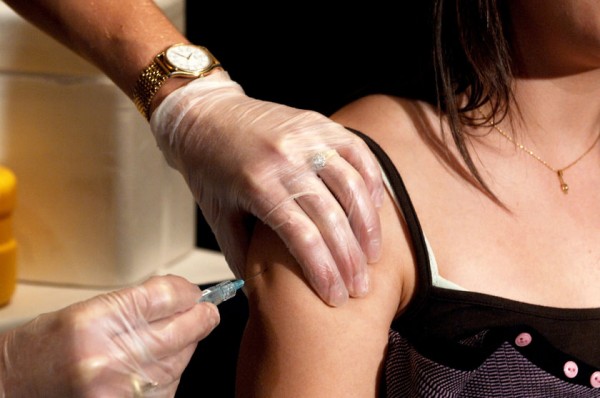
African-American women may be less likely than white women to benefit from currently available human papillomavirus (HPV) vaccines to prevent cervical cancer, according to a new study by researchers at the Duke University School of Medicine. Some of the HPV strains in the two currently available vaccines, they found, are more likely to be found in white women than in African-Americans.
HPV, a sexually transmitted virus, has more than 40 subtypes and causes nearly all cases of cervical cancer, according to the researchers. The two current vaccines available for young women prevent infection by HPV 16 and HPV 18, the HPV strains responsible for about 70 percent cervical cancers.
The researchers embarked on their study because they found that cervical cancer screening rates (Pap smears) are similar for African-Americans and whites, yet African-Americans have higher rates of cervical cancer and mortality. The study enrolled 572 participants — 280 African-American women and 292 non-Hispanic white women — who came for additional testing after receiving abnormal Pap smear results. Seventy-three percent of the women infected with HPV were infected with multiple HPV subtypes.
When the researchers looked at the specific strains of HPV in the study’s patient population, they found that white women and African-American women were often infected with different subtypes. “Since African-American women don’t seem to be getting the same subtypes of HPV with the same frequency, the vaccines aren’t helping all women equally,” said Adriana Vidal, Ph.D., assistant professor of obstetrics and gynecology at Duke University School of Medicine and the study’s lead author.
A new HPV vaccine targeting nine HPV subtypes is currently being tested “[however]…this new vaccine doesn’t include three of the strains of HPV that seem to be impacting African-American women most,” says Dr. Vidal, who added that “we may want to rethink how we develop these vaccines, given that African-Americans tend to be underrepresented in clinical trials.”
In the study, the researchers noted that the findings are preliminary and that the studies should be replicated in larger populations. The study was presented this week at the 12th annual International Conference on Frontiers in Cancer Prevention Research in Maryland. The Duke researchers received funding for the study from the National Cancer Institute.





